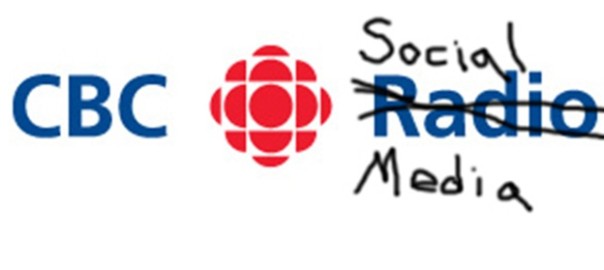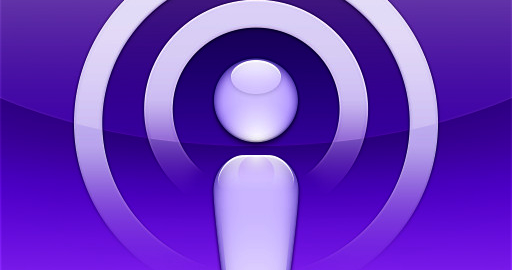The Canadian Broadcast Corporation (CBC) is increasingly putting all shows in podcast format, and even putting hourly news in podcast format for download. When Apple released their podcast friendly iTunes they looked to CBC to help promote their product.
“iTunes said you guys are one of view few music podcasts out their can we promote. For the first month they promoted the hell out of it and it gave us a really good start … Apple has been really good at it (podcasting) and they have been a huge factor in our success. In raising awareness that we are doing (podcasting) and we have been a fairly good market colleage for them.”
~ Steve Pratt, January 24, 2008 – Director CBC radio digital programing and CBC Radio 3 ~

They started in earnest two years ago and now, according to iTunes Podcast Directory, hold many of the top podcasts in Canada. CBC radio is only federally mandated to provide advertising time to candidates in either a provincial or federal election. They have no other mandate to sell advertising to on any of their radio programing.
However, just a year after they starting podcasting most of their radio shows, all podcasts are now sponsored before the start of the program. Steve Pratt – head of CBC Radio three and CBC Radio digital programing explains why the advertising is needed.
“Our License is only for terrestrial radio, so AM and FM broadcasting. And that is written into our mandate that we have to be commercial free for that. But that is where all our funding is directed as well, so all the government funding is directed towards terrestrial radio.”
~ Steve Pratt, January 24, 2008 – Director CBC radio digital programing and CBC Radio 3 ~
To fund the podcasting that was coming from CBC Pratt had to dip into the special programming fund and while that was ok when it was experimental and new as podcasting as it was going to be called became more mainstream, CBC had to find a way to fund the extra resources needed to make it’s shows available in a digital format.
The bandwidth was another issue for CBC but beyond that producers where puting a lot of resources to make the shows podcast friendly.
And while this might be easier for a local radio station to do CBC has 35 different locations across the country that both produce national and regional programing. It is a major shift of technology moving from a proprietary file format that is somewhat archaic to a MP3 friendly and more robust digital format.
“What we are implements and rolling out across the country is a program that is more MP3 friendly which requires less man ours and then using a content management system to deliver all the show to the various servers where our shows are hosted. For a broadcasters as large as the CBC it is a large rollout to producers across the country.”
“We rather look at ourselves as content creators rather then radio programers. We will find some really interesting extensions from the radio show that find themselves on a web or on a phone, it provides a really rich show experience which allows you to pick the way you want to get into it.”
~ Steve Pratt, January 24, 2008 – Director CBC radio digital programing and CBC Radio 3 ~

From expats who live around the world to Canadians who have moved across the country and still want news from their home town CBC is providing it’s listeners more way to connect and in return the national broadcaster is more relevant and has a higher listening audience.
Which really isn’t to far from the CBC’s original mandate when CBC radio went live back in November 2, 1936.
“It is pretty great. The feedback we have gotten about podcasting that is. It is really is remarkable what we hear from audiences is that as a broadcaster we need to be there. Because that is what Canadians want from us, And that our mandate is to provide programing to Canadians about Canadians for Canadians.”
~ Steve Pratt, January 24, 2008 – Director CBC radio digital programing and CBC Radio 3 ~
Podcasting is a new media where anyone can produce content and anyone can watch that content on a variety of devices, whether the business models of Podshow Inc. are a viable long term the next five years will be a very interesting time.






